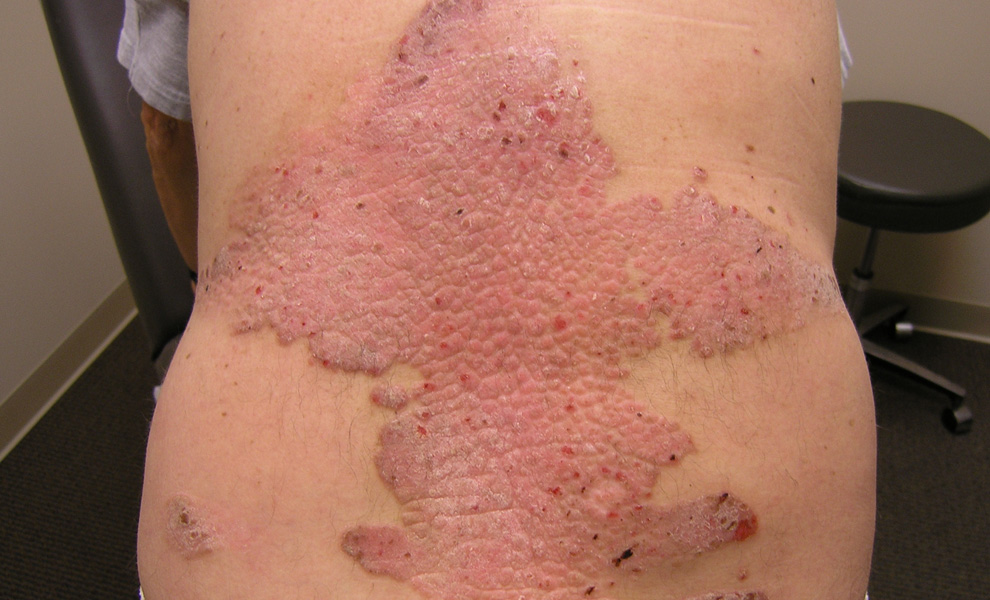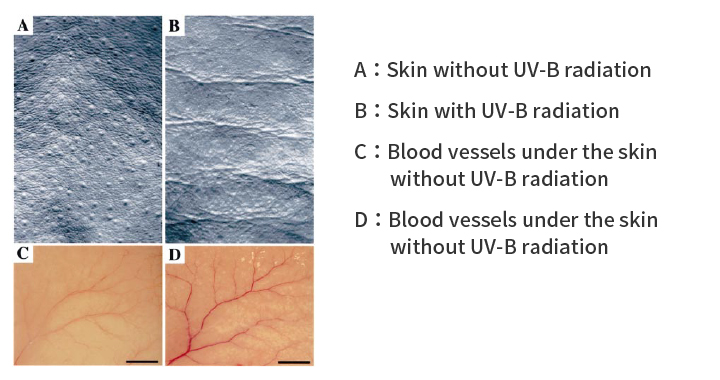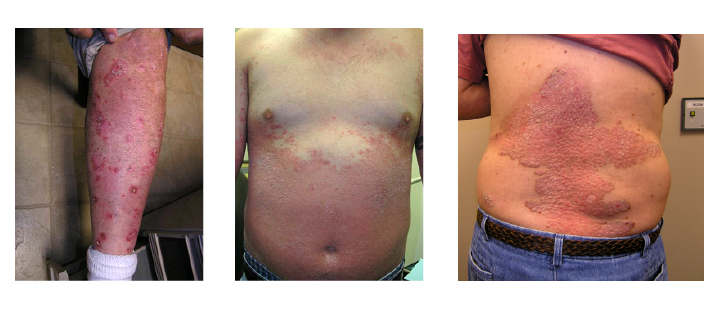
Human skin is exposed daily to solar ultraviolet (UV) radiation, infrared rays and heat, and these stimuli are known to induce skin angiogenesis.
Inflammation, wrinkling of the skin and melanin production occur as a result of exposure to ultraviolet rays. With over exposure, reactive oxygen species can be produced and these break down the extracellular matrix, in particular collagen.
The appearance of unsightly blood vessels in the skin occurs due to ultraviolet stimulation of angiogenesis. Skin photoaging and angiogenesis of the skin are closely related and suppression of photoaging in the skin can be achieved by inhibiting angiogenesis.

Psoriasis is an inflammatory skin disorder with angiogenic changes. It is characterized by excessive dermal angiogenesis. Uncontrolled angiogenesis, epidermal cell proliferation and localized chronic inflammation result in the formation of a psoriatic plaque.

The cause of psoriasis is not known, but it is believed to have a genetic component. Several factors are through to aggravate psoriasis. These include stress, excessive alcohol consumption and smoking.
The use of agents that target vascular changes represents a novel therapeutic strategy in the treatment of inflammatory diseases.